.jpg)
Public opinion perception about the fight against corruption in Moldova continues to be negative, and this is determined by the signals coming from the legal institutions. This is one of the conclusions reached by civil society representatives who participated in the public debate "Integrity of the justice sector actors in the Republic of Moldova", organized by Freedom House in collaboration with the Center for Investigative Journalism. In this context, Viorel Morari, head of the Anticorruption Prosecutor's Office said that this negative perception significantly affected prosecutors’ work.
"The activity of the Anti-Corruption Prosecutor's Office should be analyzed in evolution. It can also be analyzed starting with the examination of sentences sent to court. It is not possible to attain spectacular results on resounding cases in short term, but it is very important and I am confident that prosecutors overcome the psychological barrier and currently none is immune to prosecution", said Viorel Morari in the public debate. Also, he pointed that it was very important that the society trusted the employees of the institution he represents, as the negative perception is sometimes subjective.
Vladislav Gribincea, chairman of the Legal Resource Center in Moldova said that the public perception change about justice and the fight against corruption depend both on prosecutors and judges and on their examples for society. "The press is not blamed for distrust in justice. The bad image is determined by bad examples. Transparency is necessary in justice. The tendency not to publish judgments or to complicate the procedure for seeking these judgments, or to examine cases in closed sessions, in a society where people do not trust even their neighbors, immediately raises suspicions that something is wrong, "said Vladislav Gribincea.
Expert, about the high conviction rate in courts: "Something is wrong in Denmark"
The expert has tried to provide several examples that have disrupted society's perception of changes in justice: the way in which cases are handled - some reach quickly to court and others-in some years; the reaction of the self-administration bodies in some resounding cases - the first case concerning a judge involvement in the "Russian Laundry" was discussed by the Superior Council of Magistracy in 2012. Only in 2015 the judges who signed ordinances were arrested and many of them have been promoted between 2012-2015. "I'm glad the prosecutors say no one can stop them and they can no longer be influenced. I encourage them to prove to others that things are so. As far as the conviction rate in courts is concerned, today 97-98% of the cases are sent to court. Something is wrong in Denmark", said Vladislav Gribincea.
Also, expert Mariana Kalughin has warned prosecutors to be careful not to exceed the 100% conviction rate. "A high condemnation rate sometimes means a less democratic state, when judges are forced to meet expectations, but not the evidence in the case," she explained.
Mariana Kalughin said that the state of mind and the political context in which the fight against corruption was currently developing, cannot leave room for interpretations and suppositions on behalf of society. "Although it was known since 2012, the judges involved in the Laundromat were arrested in 2016, on the eve of elections in the context of protests. This diminishes enormously your efforts. There is only one possibility to overcome this situation– by actions. You must show fairness and equity on cases. If you provide details at the initial stage on a case, you should expect that you will be asked for the same on other cases. If information leakage happens in one case and does not happen in another one, that will affect your credibility", said the expert of the Anticorruption Prosecutor's Office.
Deputy Director of National Anticorruption Center about the void created by National Integrity Agency: "No one will take responsibility"
Cornelia Cozonac, the president of the Center for Investigative Journalism pointed out that investigative journalists had been conducting for several years actions for monitoring the integrity of justice sector actors and write about the assets and interests of judges, prosecutors and officials. Unfortunately, journalists have been denied access to information that would allow to carry out investigations about integrity. She referred to the pretext of personal data protection to block access to information, but also to exclude the option to search for court-by-name judgments in the court's database. Also, the journalist mentioned that the authorities' reaction to journalistic investigations leaves much to be desired. "Journalists are ready to work with authorities to ensure integrity in the justice sector. The authorities should want the same", said Cornelia Cozonac.
Cristina Tarna, Deputy Director of the National Anticorruption Center (CNA) said in the public discussions that currently the legislative framework regulating integrity is still dispersed, and there are no sanctions or punishments for the violations of integrity in laws. "There must be the possibility of taxing integrity deviations, not just corruption cases," explained the deputy director of CNA.
The same source mentioned the delay in the process of establishing all the structures of the National Integrity Authority (ANI) so that it could become functional. "The law on ANI set-up was adopted one year ago. Over this period no one assumes responsibility for verifying violations of integrity. A vacuum is created for which no one will take responsibility", warned Cristina Tarna.
Members of the Integrity Council of ANI argue that the authors of the project on the new structure set up should have anticipated a transition period. "We hope to unlock the activity of ANI soon. We, the members of the Integrity Council, supervise the work of the Authority, but it is absolutely necessary to elect the chairman, the deputy-chairpersons and the integrity inspectors for a functional institution. They will solve the cases of conflict of interests and inconsistencies in the statements on property, etc. When we were asked why ANI is not yet functional I explained that it is not our fault. We do what we can as far as possible. The lawmakers, the MPs, should be asked why they did not anticipate a transition period so that, until ANI is established, the Commission will be operational. Such a vacuum would have been avoided", said Viorel Russu, member of the Integrity Council, elected by the Congress of Local Authorities.
"ANI should have a proactive role, unlike CNI (National Commission of Integrity) that did not have this role, from my point of view, starting from the journalistic investigations that have been carried out and had no finality when the CNI was supposed to set a climate of intolerance to conflicts of interest. This has not happened, unfortunately", said Petru Macovei, executive director of the Association of Independent Press. He mentioned the cases of judges Mariana Pitic and Oleg Melniciuc.
National Institute of Justice, the only way to post of prosecutor and judge
Except the integrity of judges and prosecutors, the sides discussed the trust of society in the real intention of law enforcement institutions to combat corruption. Diana Scobioala, the director of the National Institute of Justice (NIJ), referred to the tools used by the NIJ, an institution responsible for the professional training of judges and prosecutors in enhancing their integrity. "As of 2020, the NIJ will become the only way to access the post, because the probationary based on seniority under the law will disappear. We have little time to think of a membership mechanism in the profession that would ensure the utmost integrity of future judges and prosecutors. Some steps have been taken. Last year, the NIJ implemented the electronic testing of the candidates. Of 1,600, only 400 tests are selected for each candidate. The program closes in 3 hours and the result is delivered in a few seconds. Everyone was pleased, even those who did not pass, because that candidate is not frustrated that something was wrong. It is an element that contributes to the person's integrity", she said. Diana Scobioala also referred to the psychological test, which will be implemented from next year, and the polygraph testing: "It is an open question because it is stipulated by the Law on Prosecutor's Office, not by the law on NIJ. This test should be performed on admission, not on graduation. "
The public debate was carried out under the project „Mobilizing civil society to support judicial integrity in the Republic of Moldova”, organized by the Center for Investigative Journalism and Freedom House, with the financial support of the US Department of State.
Textele de pe pagina web a Centrului de Investigații Jurnalistice www.anticoruptie.md sunt realizate de jurnaliști, cu respectarea normelor deontologice și sunt protejate de dreptul de autor. Preluarea textelor știrilor și a investigațiilor jurnalistice se realizează în limita maximă de 500 de semne. În mod obligatoriu, în cazul paginilor web (portaluri, agenții, instituţii media sau bloguri) trebuie indicat şi linkul direct la articolul preluat de pe www.anticoruptie.md în primul alineat, iar în cazul posturilor de radio și TV – se citează obligatoriu sursa.
Preluarea integrală a textelor se poate realiza doar în condiţiile unui acord prealabil semnat cu Centrul de Investigații Jurnalistice.
Donors:
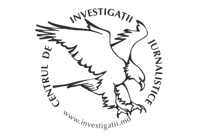
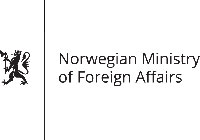

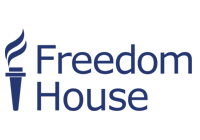
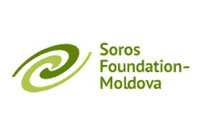
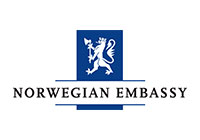
Partners:









